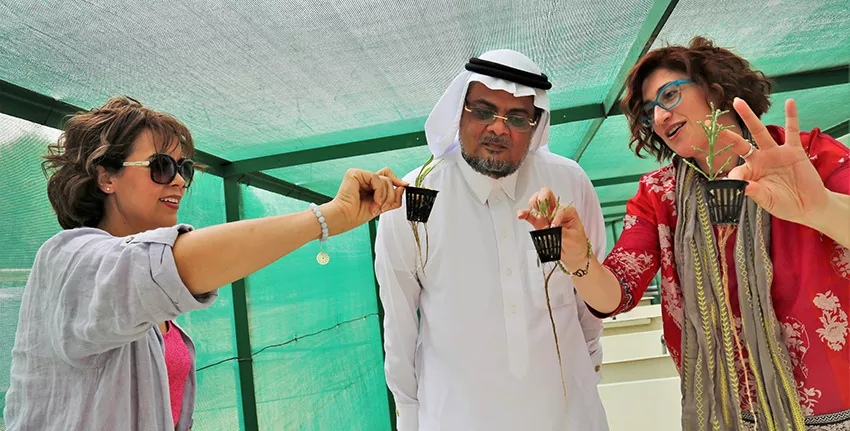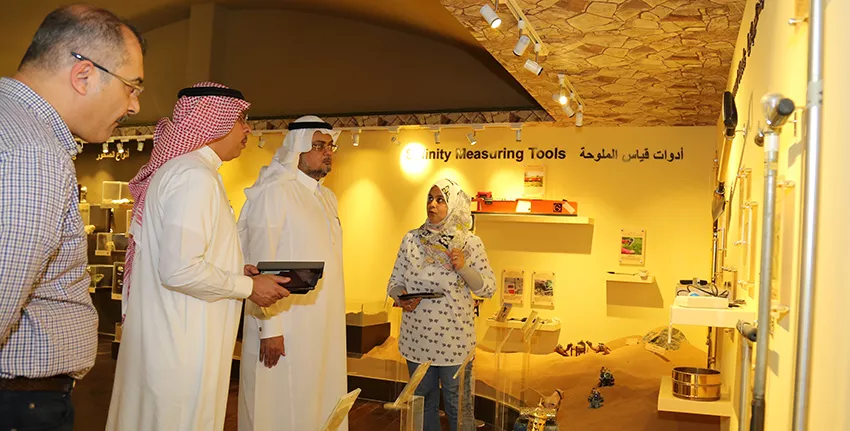Saudi deputy environment minister visits ICBA to mull cooperation
13 May 2018
His Excellency Dr. Osama Faqeeha, Deputy Minister for Environment at the Ministry of Environment, Water and Agriculture of Saudi Arabia, and His Excellency Tareq Alabbasi, Director of General Department of Biodiversity and Combating Desertification, Saudi Arabia, paid a special visit to the International Center for Biosaline Agriculture (ICBA) today to explore areas for potential collaboration.
During the visit, the high-level delegation met Dr. Ismahane Elouafi, Director General of ICBA, as well as scientists and senior management of the center. The delegation was briefed about ICBA’s scientific advances and various research-for-development initiatives in different regions, including the Middle East and North Africa, and Central Asia and the Caucasus.
During the discussions, several potential areas for collaboration were identified and it was agreed to formalize the collaboration through a memorandum of understanding in the near future.
In this regard, H.E. Dr. Osama Faqeeha said: “I am very pleased to visit ICBA today. I received an overview about the wide spectrum of research areas that ICBA is engaged in. I was impressed by the depth and variety of research areas.”
“We have a huge room for collaboration. ICBA is doing interesting research in water resources assessment and management, climate change adaptation, saline agriculture, soil improvement, advanced agricultural techniques, and many other areas. The center has a very strong focus on arid land and high-temperature areas, which also interests us,” he added.
Following the discussions, the delegation toured ICBA’s facilities, including the Emirates Soil Museum, gene bank, net-house and greenhouse facilities, the Integrated Aqua-Agriculture System, biochar production sites, and experimental fields on date palm, Salicornia and forages.
ICBA’s relationships with partners in Saudi Arabia are very strong and go back to the days of its establishment in 1999 by the Islamic Development Bank Group, the UAE Government and several international organizations.
Over the years, ICBA has been working with several institutions in Saudi Arabia, particularly the King Abdullah University of Science and Technology.
Through its research-for-development efforts, ICBA has positioned itself as one of the world’s leading centers in biosaline agriculture and has developed tailor-made solutions to the problems of salinity, drought and water scarcity in marginal environments of the world. Under its mandate, the center contributes towards the Sustainable Development Goals (SDGs), particularly SDG 1 and SDG 2 on poverty and hunger, as well as SDGs 6, 13, 15 and 17.












